Medicare Plans in Illinois
There are many Medicare options for Illinoians to choose from. However, sorting through all of the options to find the right coverage can be overwhelming; we don’t think it should be. We’ve created this guide to help navigate you through the different Medicare plans in Alabama so that you may find the coverage you need.
Who’s eligible for a Medicare Plans in Illinois?
Medicare is a health insurance program provided by the federal government for people who qualify, either by age or by disability. People typically qualify for Medicare plans in Illinois upon reaching 65 years of age. Persons under the age of 65 can qualify for Medicare if they’ve received Social Security Disability Insurance (SSDI) for the past 24 months or have been diagnosed with Amyotrophic Lateral Sclerosis (ALS) or End-Stage Renal Disease (ESRD).
In order to qualify for Medicare, you must be a citizen or permanent resident, having lived in the US for at least the past 5 years. In addition, you or your spouse must have worked at a job for 10 years or more that contributed to Medicare by way of Social Security deductions.
We can help you determine your Medicare eligibility and options. Speak to a licensed insurance agent by calling the number above.

What are the Medicare Plans in Illinois?
Orginial Medicare Part A & Part B
Original Medicare is the federal portion of Medicare and is comprised of two parts:
Part A (Hospital Insurance) covers inpatient healthcare, like hospital care, hospice care, and nursing home care (as long as custodial care isn’t the only care needed).
Part B (Medical Insurance) covers outpatient healthcare, like ambulance services, durable medical equipment (walkers, canes, blood sugar monitors, etc.), and mental health care. Part B also covers some preventive services, like flu shots, cardiovascular screenings, and diabetes screenings.
Original Medicare doesn’t cover everything and Medicare beneficiaries still pay a portion of their medical bills through coinsurance, copays, and deductibles. For this reason, Medicare beneficiaries have options available through private insurance companies contracted with Medicare to make sure that they get the coverage they want.
Medicare Advantage Plans (Part C)
Medicare Advantage (Part C) plans offer an alternative to the coverage provided by Original Medicare Parts A and B. These plans provide the same coverage as Original Medicare and often provide additional coverage, like dental, vision, and prescription drug coverage. Medicare Advantage plans with prescription drug benefits are called Medicare Advantage Prescription Drug (MAPD) plans.
In order to enroll in a Medicare Advantage plan, you must first be enrolled in both parts of Original Medicare. If enrolled, you must continue paying your Part B premium in addition to this Part C premium. There are many different Medicare Advantage plans in Illinois, offering different types of coverage.
To learn more about Medicare Advantage plans, click here.
Medicare Prescription Drug Plans (Part D)
Prescription drugs are not covered by Medicare Parts A and B, or Medigap plans. Medicare Prescription Drug plans, also known as Part D, are available through Medicare-approved private insurers to limit out-of-pocket expenses for medications. Part D plans put medications into tiers, each tier having an associated copay or coinsurance. Each plan provides a formulary so you can see what the coinsurance/copay would be for each drug. This way, you can select the plan that best matches your prescription needs.
Medicare Prescription Drug plans are provided and coordinated by private insurance companies contracted with Medicare. Any beneficiary who is eligible for Original Medicare, Part A and/or Part B, and is a permanent resident of the Medicare Prescription Drug Plan service area, can sign-up for Medicare Part D. Medicare Prescription Drug coverage is optional. You may have to pay a late-enrollment penalty if you wait to enroll, rather than enrolling as soon as you’re eligible.
You can get Medicare Part D coverage through a stand-alone Medicare Prescription Drug Plan if you’re enrolled in Original Medicare, or, through a Medicare Advantage Prescription Drug plan (MAPD), which is a Medicare Advantage plan that includes drug benefits. Monthly plan premiums and out-of-pocket expenses for prescription drugs will vary from plan to plan.
To learn more about Medicare Prescription Drug plans, click here.
Medicare Supplement Plans (Medigap)
Medicare supplement plans work to fill in the gaps in the coverage from Original Medicare Parts A and B. These plans are provided by private insurance companies that are approved by Medicare. They pair with Original Medicare to pay for the things that aren’t covered by Original Medicare, like coinsurance, deductibles, and copays.
To learn more about Medicare Supplement plans, click here.
When Can I Enroll In A Plan?
Medicare Advantage and Medicare Prescription Drug Plans
You are first eligible to sign up for Medicare plans during your Initial Enrollment Period (IEP). Your IEP begins three months before the month of your 65th birthday and lasts through the following 3 months. This means you have a total of 7 months to enroll.
You’ll then be able to make changes to your Medicare Advantage or Medicare Prescription Drug coverage during the Annual Election Period (AEP). This AEP runs from October 15th to December 7th each year.
Medicare Initial Enrollment Period

7-Month Initial Enrollment Period | Begins 3 months before the month you turn 65
*Signing up for Parts A and B during months 5,6, and 7 may result in delayed coverage.
KEY FACT: The General Enrollment Period provides you an opportunity to enroll in Original Medicare if you missed your IEP. This period occurs every year from January 1st to March 31st. Then, you’ll have an opportunity to select a Medicare Advantage Plan from April 1st through June 30th.
Additional Medicare Resources in Illinois
The Senior Health Insurance Program (SHIP) provides free, confidential counseling and assistance to Medicare beneficiaries in Illinois, their representatives, and those who are becoming eligible for Medicare.
The Medicare Savings Program provides financial support to Medicare beneficiaries in Illinois whose income falls below a certain level to help pay for Medical expenses, like premiums and deductibles.
Sources: Medicare.gov; www.illinois.gov/aging/
